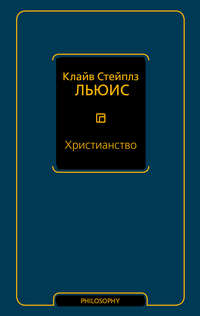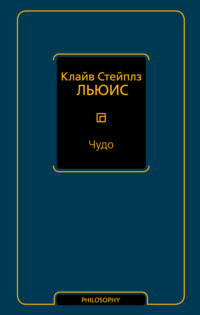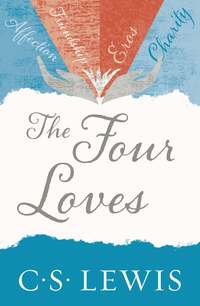
Полная версия
A Year With Aslan: Words of Wisdom and Reflection from the Chronicles of Narnia
FEBRUARY 6
Narnia, Awake!
AND NOW, FOR THE FIRST TIME, the Lion was quite silent. He was going to and fro among the animals. And every now and then he would go up to two of them (always two at a time) and touch their noses with his. He would touch two beavers among all the beavers, two leopards among all the leopards, one stag and one deer among all the deer, and leave the rest. . . . [T]he creatures whom he had touched came and stood in a wide circle around him. . . .
The Lion, whose eyes never blinked, stared at the animals as hard as if he was going to burn them up with his mere stare. And gradually a change came over them. The smaller ones – the rabbits, moles, and such-like – grew a good deal larger. The very big ones – you noticed it most with the elephants – grew a little smaller. Many animals sat up on their hind legs. Most put their heads on one side as if they were trying very hard to understand. The Lion opened his mouth, but no sound came from it; he was breathing out, a long, warm breath; it seemed to sway all the beasts as the wind sways a line of trees. Far overhead from beyond the veil of blue sky which hid them the stars sang again; a pure, cold, difficult music. Then there came a swift flash like fire (but it burnt nobody) either from the sky or from the Lion itself, and every drop of blood tingled in the children’s bodies, and the deepest, wildest voice they had ever heard was saying:
“Narnia, Narnia, Narnia, awake. Love. Think. Speak. Be walking trees. Be talking beasts. Be divine waters.”
– The Magician’s Nephew
As Aslan calls the animals to “awake”, what three things does he command them to do? Why is this ordering significant? How would you measure yourself by these three commands?
FEBRUARY 7
Adam’s Flesh and Adam’s Bone
“When Adam’s flesh and Adam’s bone
Sits at Cair Paravel in throne,
The evil time will be over and done.
“So things must be drawing near their end now [Aslan’s] come and you’ve come[, said Mr Beaver]. We’ve heard of Aslan coming into these parts before – long ago, nobody can say when. But there’s never been any of your race here before.”
“That’s what I don’t understand, Mr Beaver,” said Peter, “I mean isn’t the Witch herself human?”
“She’d like us to believe it,” said Mr Beaver, “and it’s on that that she bases her claim to be Queen. But she’s no Daughter of Eve. She comes of your father Adam’s” – (here Mr Beaver bowed) “your father Adam’s first wife, her they called Lilith. And she was one of the Jinn. That’s what she comes from on one side. And on the other she comes of the giants. No, no, there isn’t a drop of real human blood in the Witch.”
“That’s why she’s bad all through, Mr Beaver,” said Mrs Beaver.
“True enough, Mrs Beaver,” replied he, “there may be two views about humans (meaning no offence to the present company). But there’s no two views about things that look like humans and aren’t.”
“I’ve known good Dwarfs,” said Mrs Beaver.
“So’ve I, now you come to speak of it,” said her husband, “but precious few, and they were the ones least like men. But in general, take my advice, when you meet anything that’s going to be human and isn’t yet, or used to be human once and isn’t now, or ought to be human and isn’t, you keep your eyes on it and feel for your hatchet.”
– The Lion, the Witch and the Wardrobe
How could Mr Beaver’s advice about watching out for anything that used to be human or ought to be human be applicable to our world?
FEBRUARY 8
Do Not Destroy Yourself
[ARAVIS SAID,] “NOW it came to pass that my father’s wife, my stepmother, hated me, and the sun appeared dark in her eyes as long as I lived in my father’s house. And so she persuaded my father to promise me in marriage to Ahoshta Tarkaan. Now this Ahoshta is of base birth, though in these latter years he has won the favour of the Tisroc (may he live forever) by flattery and evil counsels, and is now made a Tarkaan and the lord of many cities and is likely to be chosen as the Grand Vizier when the present Grand Vizier dies. Moreover he is at least sixty years old and has a hump on his back and his face resembles that of an ape. Nevertheless my father, because of the wealth and power of this Ahoshta, and being persuaded by his wife, sent messengers offering me in marriage, and the offer was favourably accepted and Ahoshta sent word that he would marry me this very year at the time of high summer.
“When this news was brought to me the sun appeared dark in my eyes and I laid myself on my bed and wept for a day. But on the second day I rose up and washed my face and caused my mare Hwin to be saddled and took with me a sharp dagger which my brother had carried in the western wars and rode out alone. And when my father’s house was out of sight and I was come to a green open place in a certain wood where there were no dwellings of men, I dismounted from Hwin my mare and took out the dagger. Then I parted my clothes where I thought the readiest way lay to my heart and I prayed to all the gods that as soon as I was dead I might find myself with my brother. After that I shut my eyes and my teeth and prepared to drive the dagger into my heart. But before I had done so, this mare spoke with the voice of one of the daughters of men and said, ‘O my mistress, do not by any means destroy yourself, for if you live you may yet have good fortune but all the dead are dead alike.’”
– The Horse and His Boy
Would you find the mare’s words persuasive? What keeps you going on the days when the sun appears dark in your eyes?
FEBRUARY 9
Preparation
“HULLO! WHAT’S THIS?” said Edmund suddenly.
In the green valley to which they were descending, six or seven rough-looking men, all armed, were sitting by a tree.
“Don’t tell them who we are,” said Caspian.
“And pray, your Majesty, why not?” said Reepicheep, who had consented to ride on Lucy’s shoulder.
“It just occurred to me,” replied Caspian, “that no one here can have heard from Narnia for a long time. It’s just possible they may not still acknowledge our over-lordship. In which case it might not be quite safe to be known as the King.”
“We have our swords, Sire,” said Reepicheep.
“Yes, Reep, I know we have,” said Caspian. “But if it is a question of re-conquering the three islands, I’d prefer to come back with a rather larger army.”
– The Voyage of the Dawn Treader
How does one balance a call to be brave with the wisdom of caution?
FEBRUARY 10
The Worst Faun
[MR TUMNUS THE FAUN] took out from its case on the dresser a strange little flute that looked as if it were made of straw and began to play. And the tune he played made Lucy want to cry and laugh and dance and go to sleep all at the same time. It must have been hours later when she shook herself and said:
“Oh, Mr Tumnus – I’m so sorry to stop you, and I do love that tune – but really, I must go home. I only meant to stay for a few minutes.”
“It’s no good now, you know,” said the Faun, laying down its flute and shaking its head at her very sorrowfully.
“No good?” said Lucy, jumping up and feeling rather frightened. “What do you mean? I’ve got to go home at once. The others will be wondering what has happened to me.” But a moment later she asked, “Mr Tumnus! Whatever is the matter?” for the Faun’s brown eyes had filled with tears and then the tears began trickling down its cheeks, and soon they were running off the end of its nose; and at last it covered its face with its hands and began to howl.
“Mr Tumnus! Mr Tumnus!” said Lucy in great distress. “Don’t! Don’t! What is the matter? Aren’t you well? Dear Mr Tumnus, do tell me what is wrong.” But the Faun continued sobbing as if its heart would break. And even when Lucy went over and put her arms round him and lent him her handkerchief, he did not stop. He merely took the handkerchief and kept on using it, wringing it out with both hands whenever it got too wet to be any more use, so that presently Lucy was standing in a damp patch.
“Mr Tumnus!” bawled Lucy in his ear, shaking him. “Do stop. Stop it at once! You ought to be ashamed of yourself, a great big Faun like you. What on earth are you crying about?”
“Oh – oh – oh!” sobbed Mr Tumnus. “I’m crying because I’m such a bad Faun.”
“I don’t think you’re a bad Faun at all,” said Lucy. “I think you are a very good Faun. You are the nicest Faun I’ve ever met.”
“Oh – oh – you wouldn’t say that if you knew,” replied Mr Tumnus between his sobs. “No, I’m a bad Faun. I don’t suppose there ever was a worse Faun since the beginning of the world.”
“But what have you done?” asked Lucy.
“My old father, now,” said Mr Tumnus; “that’s his picture over the mantelpiece. He would never have done a thing like this.”
“A thing like what?” said Lucy.
“Like what I’ve done,” said the Faun. “Taken service under the White Witch. That’s what I am. I’m in the pay of the White Witch.”
“The White Witch? Who is she?”
“Why, it is she that has got all Narnia under her thumb. It’s she that makes it always winter. Always winter and never Christmas; think of that!”
“How awful!” said Lucy. “But what does she pay you for?”
“That’s the worst of it,” said Mr Tumnus with a deep groan. “I’m a kidnapper for her, that’s what I am. Look at me, Daughter of Eve. Would you believe that I’m the sort of Faun to meet a poor innocent child in the wood, one that had never done me any harm, and pretend to be friendly with it, and invite it home to my cave, all for the sake of lulling it asleep and then handing it over to the White Witch?”
“No,” said Lucy. “I’m sure you wouldn’t do anything of the sort.”
“But I have,” said the Faun.
“Well,” said Lucy rather slowly (for she wanted to be truthful and yet not be too hard on him), “well, that was pretty bad. But you’re so sorry for it that I’m sure you will never do it again.”
“Daughter of Eve, don’t you understand?” said the Faun. “It isn’t something I have done. I’m doing it now, this very moment.”
– The Lion, the Witch and the Wardrobe
Why do you think the Faun confesses to Lucy? When has your conscience prevented you from doing something you fully intended to do?
FEBRUARY 11
A Disagreeable Condition
HWIN SAID it looked to her as if the safest thing was to go right through the city itself from gate to gate because one was less likely to be noticed in the crowd. But she approved of the idea of disguise as well. She said, “Both the humans will have to dress in rags and look like peasants or slaves. And all Aravis’s armour and our saddles and things must be made into bundles and put on our backs, and the children must pretend to drive us and people will think we’re only pack-horses.”
“My dear Hwin!” said Aravis rather scornfully. “As if anyone could mistake Bree for anything but a war horse however you disguised him!”
“I should think not, indeed,” said Bree, snorting and letting his ears go ever so little back.
“I know it’s not a very good plan,” said Hwin. “But I think it’s our only chance. And we haven’t been groomed for ages and we’re not looking quite ourselves (at least, I’m sure I’m not). I do think if we get well plastered with mud and go along with our heads down as if we’re tired and lazy – and don’t lift our hoofs hardly at all – we might not be noticed. And our tails ought to be cut shorter: not neatly, you know, but all ragged.”
“My dear Madam,” said Bree. “Have you pictured to yourself how very disagreeable it would be to arrive in Narnia in that condition?”
“Well,” said Hwin humbly (she was a very sensible mare), “the main thing is to get there.”
– The Horse and His Boy
What is at the heart of Bree’s reluctance to accept Hwin’s plan? How do such feelings block out common sense? How do you allow similar feelings to get in your way?
FEBRUARY 12
Always a Way Through
“DO NOT FLY TOO HIGH,” said Aslan. “Do not try to go over the tops of the great ice-mountains. Look out for the valleys, the green places, and fly through them. There will always be a way through. And now, begone with my blessing.”
– The Magician’s Nephew
Do you believe, as Aslan asserts, that there is always a way through? How have you seen this to be true in your own life?
FEBRUARY 13
The Solitary Journey
“IF YOU GO BACK to the others now, and wake them up; and tell them you have seen me again; and that you must all get up at once and follow me – what will happen? There is only one way of finding out.”
“Do you mean that is what you want me to do?” gasped Lucy.
“Yes, little one,” said Aslan.
“Will the others see you too?” asked Lucy.
“Certainly not at first,” said Aslan. “Later on, it depends.”
“But they won’t believe me!” said Lucy.
“It doesn’t matter,” said Aslan. . . .
Lucy buried her head in his mane to hide from his face. But there must have been magic in his mane. She could feel lion-strength going into her. Quite suddenly she sat up.
“I’m sorry, Aslan,” she said. “I’m ready now.”
“Now you are a lioness,” said Aslan. “And now all Narnia will be renewed. But come. We have no time to lose.”
He got up and walked with stately, noiseless paces back to the belt of dancing trees through which she had just come: and Lucy went with him, laying a rather tremulous hand on his mane. . . .
“Now, child,” said Aslan, when they had left the trees behind them, “I will wait here. Go and wake the others and tell them to follow. If they will not, then you at least must follow me alone.”
– Prince Caspian
Why doesn’t Aslan care whether Lucy’s siblings believe her? Have you ever felt like you had to move forward on your own, without the support of others?
FEBRUARY 14
The Slave Dealer and Reepicheep
THEN THE FOUR HUMAN PRISONERS were roped together, not cruelly but securely, and made to march down to the shore. Reepicheep was carried. He had stopped biting on a threat of having his mouth tied up, but he had a great deal to say, and Lucy really wondered how any man could bear to have the things said to him which were said to the slave dealer by the Mouse. But the slave dealer, far from objecting, only said “Go on” whenever Reepicheep paused for breath, occasionally adding, “It’s as good as a play,” or, “Blimey, you can’t help almost thinking it knows what it’s saying!” or, “Was it one of you what trained it?” This so infuriated Reepicheep that in the end the number of things he thought of saying all at once nearly suffocated him and he became silent.
– The Voyage of the Dawn Treader
Is Reepicheep brave or foolish to speak so boldly to the slave dealer? What is it about the dealer’s response that infuriates Reepicheep so much? When have you been so angry that you were at a loss for words?
FEBRUARY 15
The Two Lords Plot
AN HOUR LATER two great lords in the army of Miraz, the Lord Glozelle and the Lord Sopespian, strolling along their lines and picking their teeth after breakfast, looked up and saw coming down to them from the wood the Centaur and Giant Wimbleweather, whom they had seen before in battle, and between them a figure they could not recognize. Nor indeed would the other boys at Edmund’s school have recognized him if they could have seen him at that moment. For Aslan had breathed on him at their meeting and a kind of greatness hung about him.
“What’s to do?” said the Lord Glozelle. “An attack?”
“A parley, rather,” said Sopespian. “See, they carry green branches. They are coming to surrender most likely.”
“He that is walking between the Centaur and the Giant has no look of surrender in his face,” said Glozelle. “Who can he be? It is not the boy Caspian.”
“No indeed,” said Sopespian. “This is a fell warrior, I warrant you, wherever the rebels have got him from. He is (in your Lordship’s private ear) a kinglier man than ever Miraz was. And what mail he wears! None of our smiths can make the like.”
“I’ll wager my dappled Pomely he brings a challenge, not a surrender,” said Glozelle.
“How then?” said Sopespian. “We hold the enemy in our fist here. Miraz would never be so hare-brained as to throw away his advantage on a combat.”
“He might be brought to it,” said Glozelle in a much lower voice.
“Softly,” said Sopespian. “Step a little aside here out of earshot of those sentries. Now. Have I taken your Lordship’s meaning aright?”
“If the King undertook wager of battle,” whispered Glozelle, “why, either he would kill or be killed.”
“So,” said Sopespian, nodding his head.
“And if he killed we should have won this war.”
“Certainly. And if not?”
“Why, if not, we should be as able to win it without the King’s grace as with him. For I need not tell your Lordship that Miraz is no very great captain. And after that, we should be both victorious and kingless.”
“And it is your meaning, my Lord, that you and I could hold this land quite as conveniently without a King as with one?”
Glozelle’s face grew ugly. “Not forgetting,” said he, “that it was we who first put him on the throne. And in all the years that he has enjoyed it, what fruits have come our way? What gratitude has he shown us?”
“Say no more,” answered Sopespian.
– Prince Caspian
Why do the two lords feel the way they do towards King Miraz? When is it appropriate to break loyalty with a King or ruler and when is it betrayal?
FEBRUARY 16
The Two Lords Goad Miraz
“AS TOUCHING THE CHALLENGE,” [said Miraz,] “I suppose there is only one opinion between us?”
“I suppose so, indeed, Sire,” said Glozelle.
“And what is that?” asked the King.
“Most infallibly to refuse it,” said Glozelle. “For though I have never been called a coward, I must plainly say that to meet that young man in battle is more than my heart would serve me for. And if (as is likely) his brother, the High King, is more dangerous than he – why, on your life, my Lord King, have nothing to do with him.”
“Plague on you!” cried Miraz. “It was not that sort of counsel I wanted. Do you think I am asking you if I should be afraid to meet this Peter (if there is such a man)? Do you think I fear him? I wanted your counsel of the policy of the matter; whether we, having the advantage, should hazard it on a wager of battle.”
“To which I can only answer, your Majesty,” said Glozelle, “that for all reasons the challenge should be refused. There is death in the strange knight’s face.”
“There you are again!” said Miraz, now thoroughly angry. “Are you trying to make it appear that I am as great a coward as your Lordship?”
“Your Majesty may say your pleasure,” said Glozelle sulkily.
“You talk like an old woman, Glozelle,” said the King. “What say you, my Lord Sopespian?”
“Do not touch it, Sire,” was the reply. “And what your Majesty says of the policy of the thing comes in very happily. It gives your Majesty excellent grounds for a refusal without any cause for questioning your Majesty’s honour or courage.”
“Great Heaven!” exclaimed Miraz, jumping to his feet. “Are you also bewitched today? Do you think I am looking for grounds to refuse it? You might as well call me coward to my face.”
The conversation was going exactly as the two lords wished, so they said nothing.
“I see what it is,” said Miraz, after staring at them as if his eyes would start out of his head, “you are as lily-livered as hares yourselves and have the effrontery to imagine my heart after the likeness of yours! Grounds for a refusal, indeed! Excuses for not fighting! Are you soldiers? Are you Telmarines? Are you men? And if I do refuse it (as all good reasons of captaincy and martial policy urge me to do) you will think, and teach others to think, I was afraid. Is it not so?”
“No man of your Majesty’s age,” said Glozelle, “would be called coward by any wise soldier for refusing the combat with a great warrior in the flower of his youth.”
“So I’m to be a dotard with one foot in the grave, as well as a dastard,” roared Miraz. “I’ll tell you what it is, my Lords. With your womanish counsels (ever shying from the true point, which is one of policy) you have done the very opposite of your intent. I had meant to refuse it. But I’ll accept it. Do you hear, accept it! I’ll not be shamed because some witchcraft or treason has frozen both your bloods.”
– Prince Caspian
What tactics do the two lords use to convince Miraz to accept Peter’s challenge of a single, person-to-person combat? When have you allowed yourself to be convinced by peer pressure to do something you might otherwise not have done?
FEBRUARY 17
Approaching Aslan
ASLAN STOOD IN THE CENTRE of a crowd of creatures who had grouped themselves round him in the shape of a half-moon. There were Tree-Women there and Well-Women (Dryads and Naiads as they used to be called in our world) who had stringed instruments; it was they who had made the music. There were four great centaurs. The horse part of them was like huge English farm horses, and the man part was like stern but beautiful giants. There was also a unicorn, and a bull with the head of a man, and a pelican, and an eagle, and a great Dog. And next to Aslan stood two leopards of whom one carried his crown and the other his standard.
But as for Aslan himself, the Beavers and the children didn’t know what to do or say when they saw him. People who have not been in Narnia sometimes think that a thing cannot be good and terrible at the same time. If the children had ever thought so, they were cured of it now. For when they tried to look at Aslan’s face they just caught a glimpse of the golden mane and the great, royal, solemn, overwhelming eyes; and then they found they couldn’t look at him and went all trembly.
“Go on,” whispered Mr Beaver.
“No,” whispered Peter, “you first.”
“No, Sons of Adam before animals,” whispered Mr Beaver back again.
“Susan,” whispered Peter, “what about you? Ladies first.”
“No, you’re the eldest,” whispered Susan. And of course the longer they went on doing this the more awkward they felt. Then at last Peter realized that it was up to him. He drew his sword and raised it to the salute and hastily saying to the others “Come on. Pull yourselves together,” he advanced to the Lion and said:
“We have come – Aslan.”
– The Lion, the Witch and the Wardrobe
Why is it so hard for them to approach Aslan? Who or what in your life has required a great deal of courage for you to face?
FEBRUARY 18
Not Your Horse
“ALL RIGHT THEN,” said Aravis. “You’ve guessed it. Hwin and I are running away. We are trying to get to Narnia. And now, what about it?”
“Why, in that case, what is to prevent us all going together?” said Bree. “I trust, Madam Hwin, you will accept such assistance and protection as I may be able to give you on the journey?”
“Why do you keep talking to my horse instead of to me?” asked the girl.








